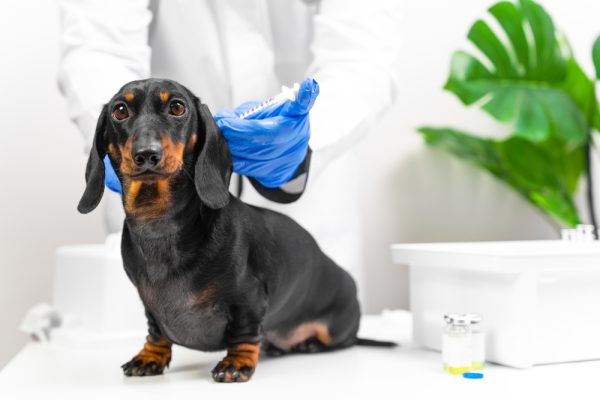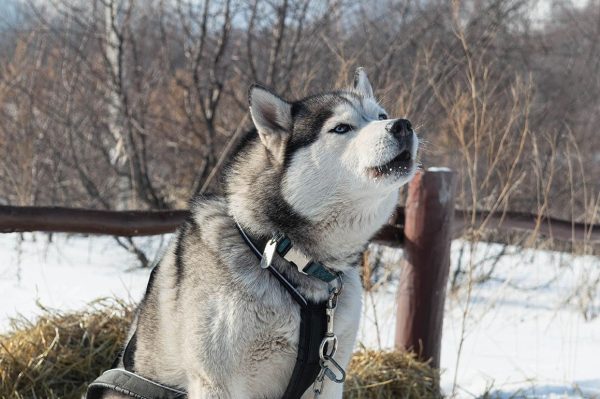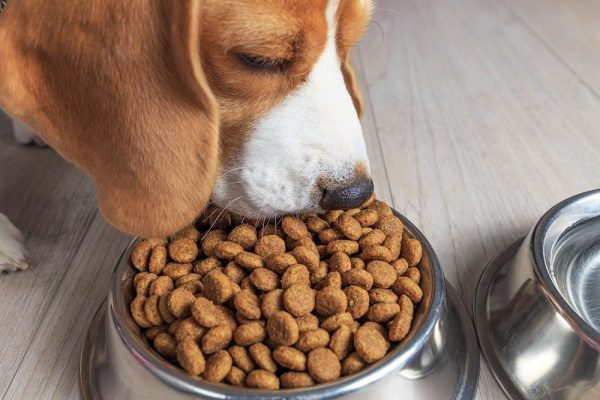Chihuahuas have long been known as being small, vivacious companion dogs. Many people like them because they are not large, they’re easy to walk and/or pick up, and can travel easily with their owners. In general, Chihuahuas tend to live long lives. However, they are not without health problems and concerns. In this article we’ll discuss the 6 most common Chihuahua health concerns that you should be aware of, whether you are looking to adopt or already own a Chihuahua.

The 6 Chihuahua Health Problems
1. Dental Disease
Our small breed dogs tend to suffer from dental disease much younger than our medium to giant breed dogs. It’s not uncommon for small breed dogs like the Chihuahua to have severe dental disease and lose teeth by only a few years of age.
No matter what type of food you feed, there is no proven “better” food to help prevent dental disease except prescription dental food. The best preventative is brushing your Chihuahua’s teeth from a young age so that they are used to it, and then getting them routine dental cleanings with your veterinarian.
It’s best not to wait to get their teeth cleaned until they are geriatric and now have significant dental disease. This is because the anesthetic, surgical, and overall health risks of a dental cleaning at an older age are much higher than when they are younger. Always speak to your veterinarian about their favorite products for long-term dental health in your Chihuahua.
If you need to speak with a vet but can't get to one, head over to PangoVet. It's our online service where you can talk to a vet online and get the advice you need for your dog — all at an affordable price!

2. Luxating Patellas
This is one of the most common Chihuahua leg problems. The patella is another name for the kneecap. Small dogs, especially Chihuahuas, will often have a luxating patella. In other words, the patella does not stay in the middle of the knee, but rather floats to either the outside or the inside of the knee (stifle) joint. This can cause significant pain, swelling/inflammation, and eventually arthritis in the affected stifle.
It can affect either one or both knees and oftentimes small dogs get this because the groove in the bone that helps to keep the patella in place (the patellar groove) is too shallow. This allows the patella to come out of place. Some dogs will only get this problem occasionally and it can be managed with intermittent pain medications. Other times surgery is needed to help keep the kneecap in place if your Chihuahua is suffering from chronic pain and lameness.
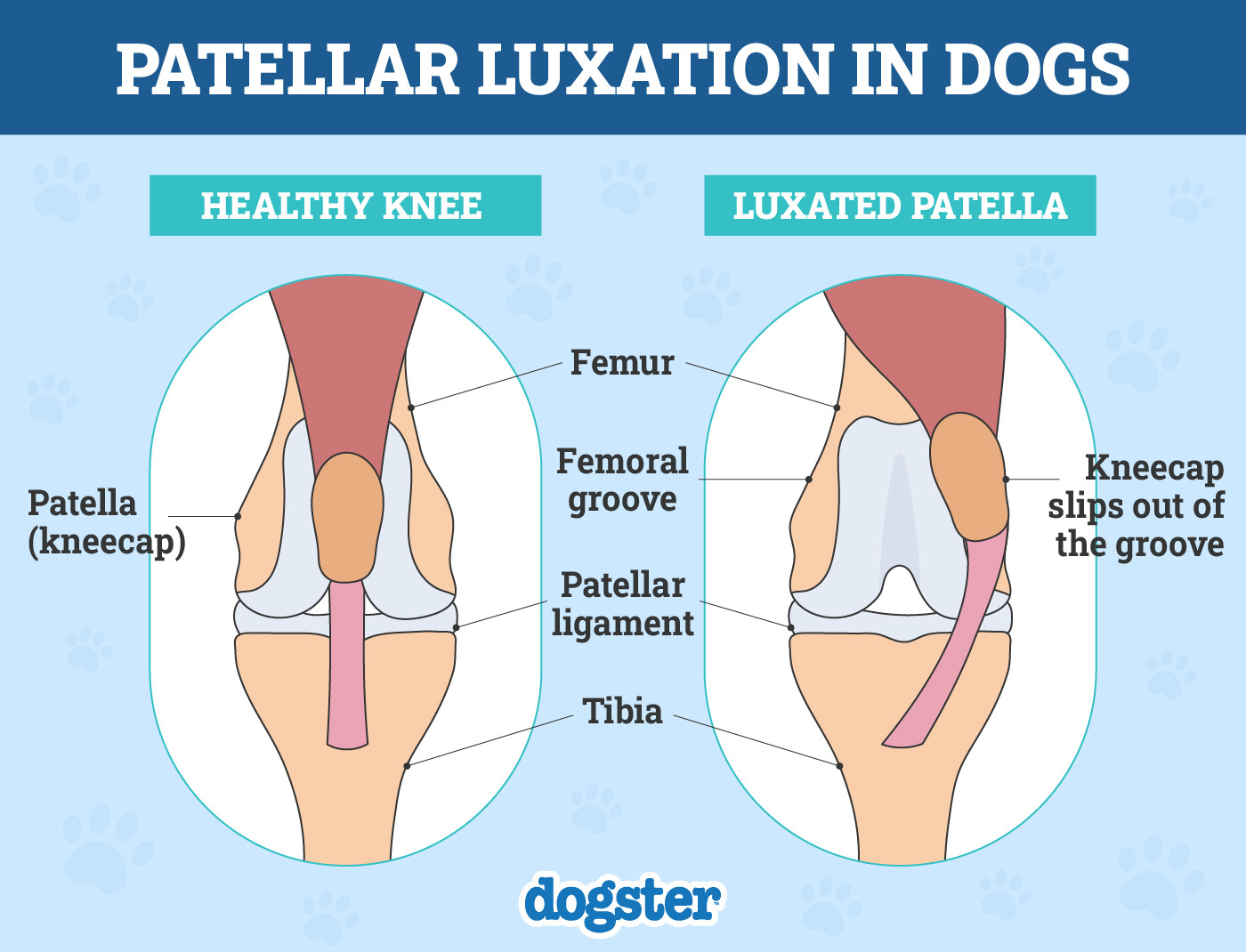
3. Hypoglycemia
When Chihuahuas are puppies, they can be extremely small. This can put them at an increased risk to develop a decreased blood sugar level, or hypoglycemia. This is important to know and remember if you adopt a puppy that has just been transitioned from nursing on mom to dog food, or is not yet fully grown. It’s important that your new puppy eats every few hours to keep their blood sugar at an appropriate level.
Even as they get older, some Chihuahuas will remain small. It’s always important to speak with your veterinarian about how much and how often to feed your Chihuahua. While most dogs are fed two or three times daily, small Chihuahuas may need a few small snacks during the day to maintain their blood sugars. If severe enough, hypoglycemia can lead to seizures and even death if not diagnosed and/or treated quickly.
4. Tracheal Collapse
The trachea is the windpipe that connects an animal’s nose and oral cavity to their lungs. It is vital for life for your dog in every capacity. Some small dogs can be born with a trachea that is more narrow than normal. This is called a hypoplastic trachea. However, more commonly, Chihuahuas will get a condition called a collapsing trachea. This is when the cartilage rings that help to keep the trachea open will become weak and collapse. Sometimes only a small portion collapses, other times large lengths of the trachea will collapse and become severely narrowed.
Think about trying to drink a milkshake out of a straw that keeps collapsing – you can barely get any. Now pretend that is a Chihuahua trying to breathe through a narrowed windpipe – it can cause significant distress and even death. Medical management can be appropriate in some dogs while others may need surgery to have a stent placed. This condition tends to worsen as a dog ages, though it can be present at almost any age.
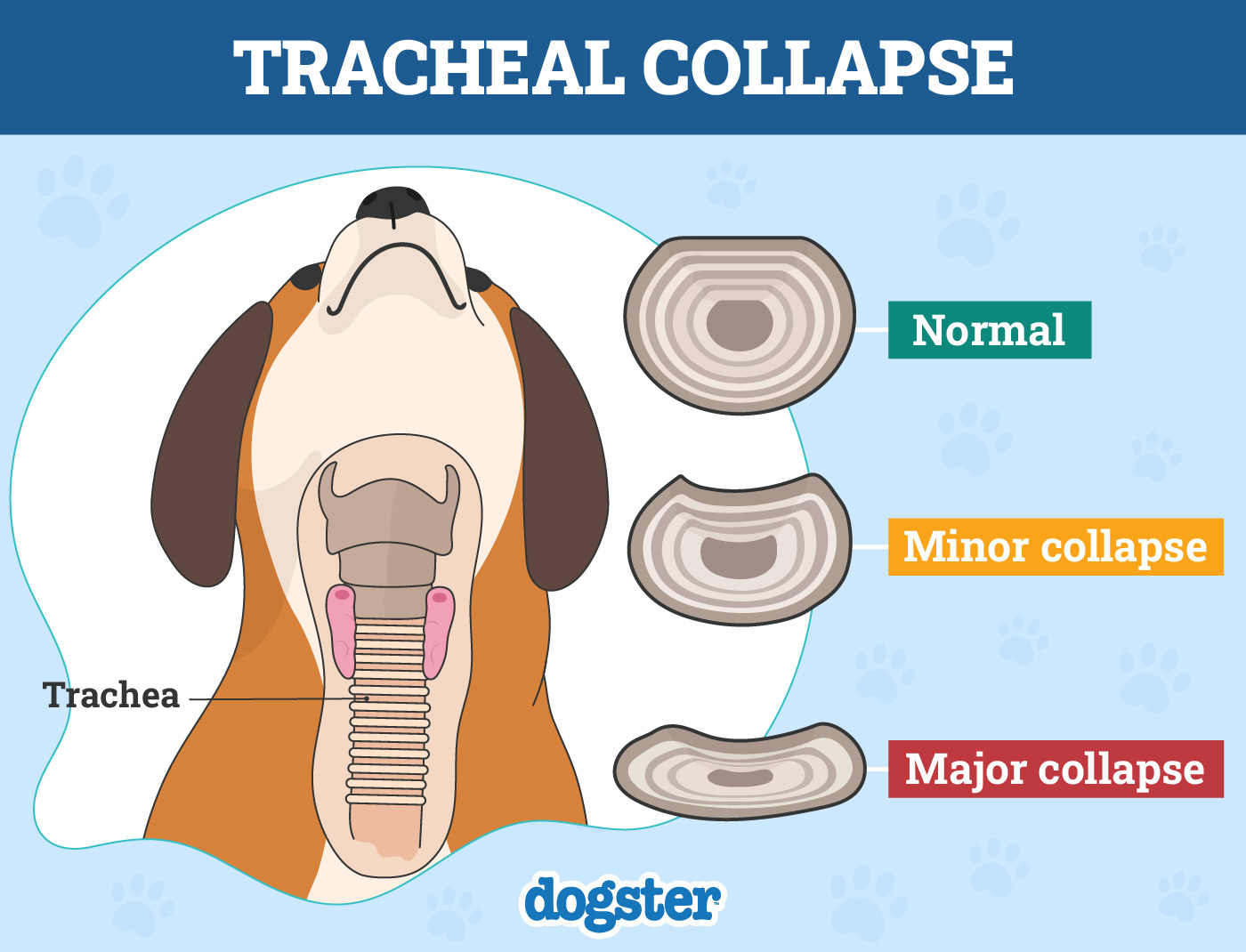
5. Valvular Heart Disease
Smaller dogs such as Chihuahuas are at higher risk for developing valvular heart disease as they age. This occurs when one or more valves of their heart degenerate and do not function properly. What commonly occurs is backflow of blood into the chambers of the heart instead of all of the blood being pumped forward while the heart contracts.
Over time, this will lead to an increased overall size of the heart and/or just certain chambers, difficulty breathing, and congestive heart failure. Radiographs and an echocardiogram are needed to diagnose this and prognosis is dependent on the severity of the disease and how many valves are affected. Medical management is recommended, though many dogs will progress quickly and pass away from complications from their heart disease.
6. Hydrocephalus & Open Fontanel
Some Chihuahuas may be born with brain/skull issues. These include hydrocephalus and open fontanels. Hydrocephalus is typically present from birth and will cause cerebrospinal fluid (CSF) to accumulate on the brain. The brain and head can become swollen and/or enlarged and your Chihuahua may have an altered mentation, seizures, difficulty walking or disorientation.
An open fontanel occurs when the skull does not completely fuse together, leaving an open soft spot on the head. This can sometimes cause similar signs to hydrocephalus. Other times the affected Chihuahua may be asymptomatic but care must be taken to not cause any trauma to that area of the head.
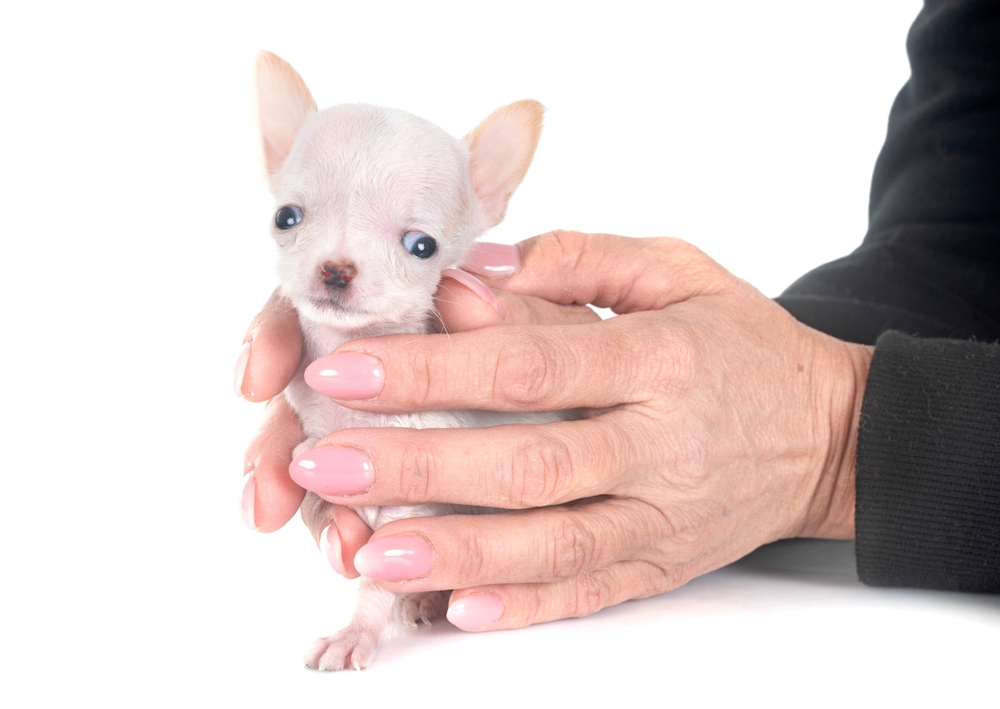

Conclusion
Chihuahuas are known for the spicy temperaments that occur in a very small body size. While many Chihuahuas will live to a very old age, this breed does still have their health problems. Chihuahuas may have health issues when they are young, such as an open fontanel, hydrocephalus, and/or hypoglycemia. As they get older, other Chihuahuas may have problems with a luxating patella(s), collapsing trachea, and dental disease. Valvular heart disease can also be a common problem in middle-aged to older Chihuahuas.
It’s important that your Chihuahua is receiving regular exams with a veterinarian so that their health issues can be monitored and worked-up as needed. Depending on what your Chihuahua’s health problem is will determine any treatments associated with them and the prognosis.
Featured Image Credit: anetapics, Shutterstock








